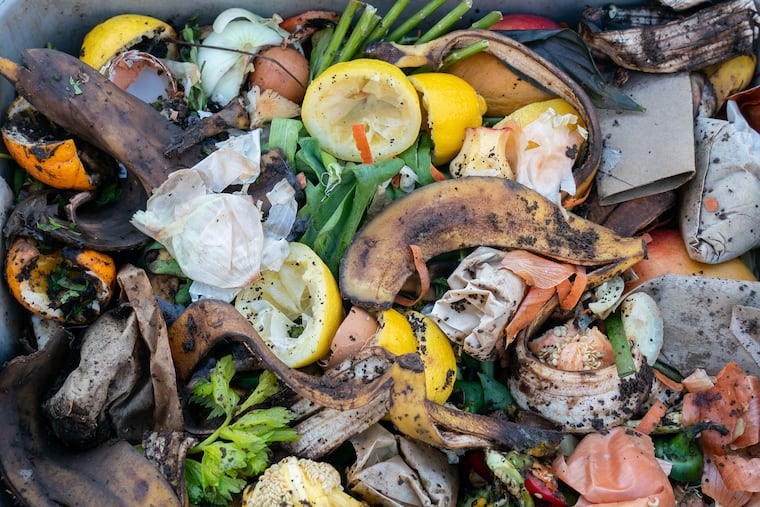Philadelphia to launch city-wide composting network of up to 25 sites
Philadelphia plans to create a city-wide network of up to 25 food waste composting sites.

Philadelphia plans to create a citywide network of up to 25 composting sites, designed to reduce food waste and create organic soil for residents to use for gardens and crops.
In an online post by the city’s Parks and Recreation Department and Office of Sustainability seeking applicants to host the sites, officials explained that they envision the sites to preferably be located on city-owned land used by urban farms, civic organizations, community gardens, recreation facilities, or schools. The Zero Waste and Litter Cabinet is also participating.
Ideally, composting sites would be spread evenly across the city, rather than concentrated in any one area.
Residents would bring their food and yard waste to a location near their neighborhoods. Soil created after the waste breaks down would then be used within those communities.
The city hopes to identify between 20 and 25 locations in the coming months.
Ash Richards, who will oversee the Philadelphia Community Composting Network program, believes some composting sites can be set up as soon as late summer or fall.
“We want community groups to participate,” Richards said Wednesday. Applicants who are chosen to host facilities would be responsible for maintaining them and distributing the compost. “Ultimately, we want residents and folks who have agricultural projects to have access to land and grow nutrient-rich food. So we want them to have nutrient-rich soil.”
The composting bins will be built by city workers, along with members of the Parks and Recreation Power Corps. The bins will be uniform wooden structures that are rodent- and critter-proof.
Richards said city-owned land being used by groups would be the best fit to host a site, but private property would be acceptable as long as a group has permission from the owner.
Richards, director of urban agriculture under Parks and Recreation, said the hope is that groups take food waste from schools, churches, restaurants, and other institutions.
Officials will spend the summer looking for a consultant to develop a training manual for groups hosting a compost site. The groups will have to know what type of food scraps would be acceptable (no meat or citrus, for example), as well as how to work the three-bin system and distribute the compost.
In a three-bin system, the first bin is used to store incoming food scraps. The second bin holds scraps that have been turned. The third bin holds the food waste that is beginning to break down and generate soil. Richards cited the existing Parks and Recreation Schuylkill River Park Community Garden compost system as an example of how a site would work.
The vision falls under the city’s Greenworks Sustainability and Zero Waste and Litter Action plans, which call for residential composting opportunities. Diverting organic food scraps from landfills to reduce the city’s overall waste stream is a primary goal. Philadelphia’s effort is modeled after a program run by Washington’s Parks and Recreation Department, and is funded by a 2018 grant from Comcast Corp.
Additionally, the network would host workshops on waste disposal, the advantages and best practices of composting, and how to reduce waste. The city would collect data on the amount of food scraps amassed by the network, as well as the amount of compost generated.
Food waste is a big and growing problem, according to the U.S. Environmental Protection Agency. The agency says on its website that 39 million tons of food waste is generated annually. Almost all goes to landfills or incinerators instead of being composted. According to a statement on the agency’s website, “more food reaches landfills and incinerators than any other single material in our everyday trash."
Moreover, the U.N. Food and Agriculture Organization estimates that one-third of all food produced for human consumption worldwide goes to waste.
Composting presents one solution through a natural process that breaks down food waste and turns it into soil.
And there’s a demand within the city by residents who want to dispose of food waste rather than just toss it in the trash. “Greenpreneurs” already have thousands of customers who pay to have their food scraps picked up and brought to a compost site, rather than just tossed in the trash.
The city’s new community composting program would prohibit for-profit companies or groups from using the public network. Applications to host a compost site are due by June 28.